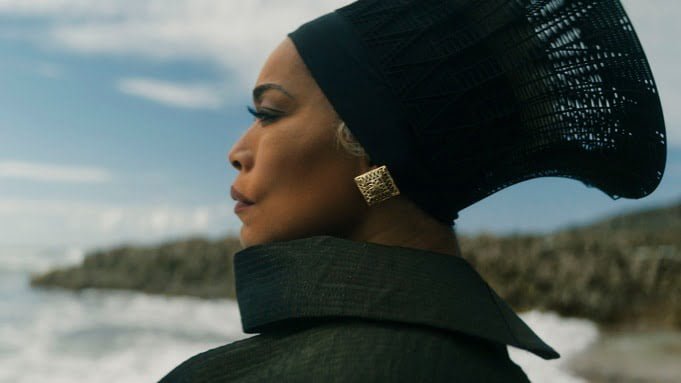Letitia Wright, Angela Bassett, Lupita Nyong’o and Danai Gurira return to defend their grieving nation from a new threat in the hotly anticipated
Faced with the challenging prospect of following his $1.3 billion-grossing blockbuster without the charismatic lead actor who provided that first film’s noble heart, Ryan Coogler delivers an emotionally resonant tribute to Chadwick Boseman in the early scenes of Black Panther: Wakanda Forever that will leave no fan unmoved. Extending through the Marvel logo on the opening credits — redesigned to feature stirring images of the late actor — the entire intro invites audiences to share in the grief felt by the filmmakers and cast, as well as the characters they play, planting a vein of exquisite sorrow that ripples through this epic sequel.
The simple words on the end credits, “Dedicated to our friend Chadwick Boseman,” define the prevailing spirit of the movie, with its melancholy acknowledgement of loss and legacy. Which is not to say it’s short on excitement, action or even humor. Just thinking about Winston Duke’s swaggering Wakandan mountain warrior M’Baku chomping on a carrot while snarling “You bald-headed demon” at Danai Gurira’s Okoye, his rival general from the all-female Dora Milaje special forces unit, makes me laugh.
More than any other entry in the MCU canon, Black Panther became a genuine cultural phenomenon in terms of proud representation — a futuristic action-adventure that embraced history and tradition. It was an implicitly political depiction of a staunchly independent African nation resisting the grasp of colonizers hungry for its natural resources, a boldly imaginative response to generations of real-world trauma. Wrapping all that up in some cool superhero shit was a considerable achievement.
Coogler and returning co-screenwriter Joe Robert Cole maintain and arguably even fortify that vein here. They introduce another ancient civilization of Indigenous people who have escaped a brutal history of enslavement and genocide, living in fantastical seclusion and ready to unleash all their considerable might against any global plunderer angling to tap their most precious natural resource. That, of course, is vibranium, the same meteorite-derived metal element from which Wakanda draws its power.
Whether those hidden underwater-dwelling Mayan descendants, led by the formidable ruler of Talokan, Namor (Tenoch Huerta Mejia), become valuable allies or dangerous enemies to the Wakandans is the chief intrigue driving the plot of the sequel — and possibly future installments.
Coogler resists the tireless cross-pollination impulse of so many MCU movies by concluding with two clear separate indications of ongoing conflict, as well as a mid-credits sequence both moving and jaw-dropping, which induced gasps at the press screening I caught. Black Panther characters might continue to lend a hand in those other Marvel exploits populated by characters who talk like quippy teenagers, but every seed planted here is of a more somber saga predominantly contained within its own complex universe.
If the storytelling occasionally gets messy with its endless location switches, the battles sometimes sacrifice visceral action for CG magnitude, and the running time (an expansive 2 hours 41 minutes) is definitely felt, particularly in the ambling midsection, this eagerly anticipated sequel is every bit as thrilling as it needs to be.
The presence of two principal characters, Letitia Wright’s royal tech geek Shuri and her mother, Queen Ramonda (Angela Bassett), has been amped up in affecting ways to which both actors respond with bracing authority. That comes as a direct result of the death of King T’Challa and consequent…
Latest News=



